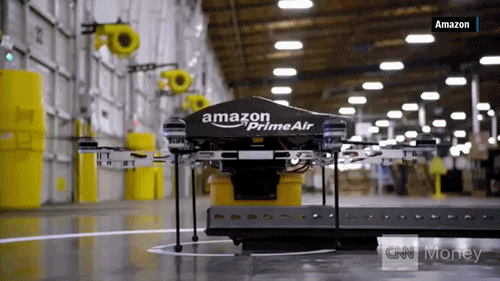Gillian Tett of the Financial Times wonders whether the perplexing elevation of an unqualified orange supremacist to the Oval Office could accelerate the loss of jobs to machines in our technological age, a mass outsourcing not beyond borders but beyond species. A fair concern, though not my main one.
First there’s the possible end of 240 years of American democracy to fascism, not an impossible outcome. Also there’s potential for nuclear war, worsening climate change, shredding of the Constitution, establishment of Muslim registries, harassment of undocumented workers, and an assault on women’s health from a seeming sociopath whose early moves suggest he wants to leave them bleeding from the wherever.
But Tett makes good points in the area she investigates, suggesting that perhaps automation will lead to a freestyle-chess-tandem arrangement between humans and computers, creating more and better jobs–unless policy disturbs that process. Certainly that was the result of the Industrial Age, though I’m not convinced past is prologue in this case. The cooperation between carbon and silicon workers may be provisional, with computers ultimately relieving us of too many of our duties in too brief a period of time.
Then again, I just spent 15 frustrating minutes navigating an automated customer-service phone system which was dumb as a rock. Maybe there’s hope for us yet?
An excerpt:
Consider the findings of Benjamin Shestakofsky, an anthropologist who spent 19 months inside a California company that uses digital technologies to connect buyers and sellers of domestic services. Mr Shestakovsky initially assumed that his research would show how machines were replacing human workers. When he did grassroots analysis he realised that the company was growing so fast, with such big and complex computing systems, that it was constantly drafting more humans — not robots — to monitor, manage and interpret the data. “Software automation can substitute for labour but it also creates new human-machine complementaries,” he told an American Anthropological Association meeting recently, noting that companies “are creating new types of jobs”.
Shreeharsh Kelkar, another anthropologist, saw the same pattern in the education world. Until recently it was presumed that the rise of digital teaching tools would make human teachers less important. But watching educators in action, Mr Kelkar found that human teachers are working with these digital tools to be more efficient. The issue is not that computers are automating jobs away, he says, but that “assemblages of humans and computers are emerging”.
An obvious response is that it is far from clear whether these anecdotes are typical, nor does anyone know whether these new “assemblages” of human and machine will create enough jobs to offset those lost to automation. In addition, new digitised jobs may seem less attractive than the old roles since they are often structured as “contingent work”, with self-employed workers who provide services on demand.
Still, the findings of the anthropologists should not be ignored.•



